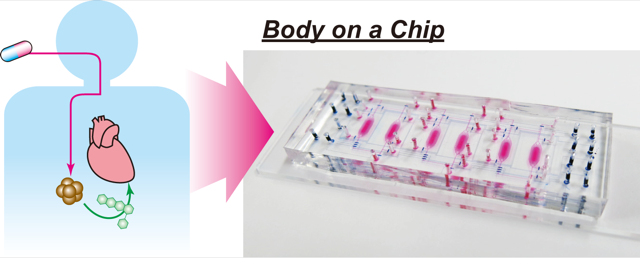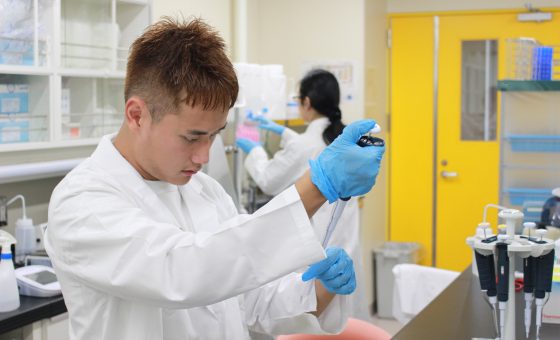Next-generation drug testing on chips
Improvements to tiny body-on-a-chip devices could lead to next-generation pre-clinical testing of drug toxicity

Researchers at Kyoto University’s Institute for Integrated Cell-Material Sciences (iCeMS) in Japan have designed a small ‘body-on-a-chip’ device that can test the side effects of drugs on human cells. The device solves some issues with current, similar microfluidic devices and offers promise for the next generation of pre-clinical drug tests.
The Integrated Heart/Cancer on a Chip (iHCC) was used to test the toxicity of the anti-cancer drug doxorubicin on heart cells. The researchers, led by iCeMS’s Ken-ichiro Kamei, found that, while the drug itself was not toxic to heart cells, a metabolite of the drug resulting from its interaction with cancer cells was.
Further details are available at the following page:







